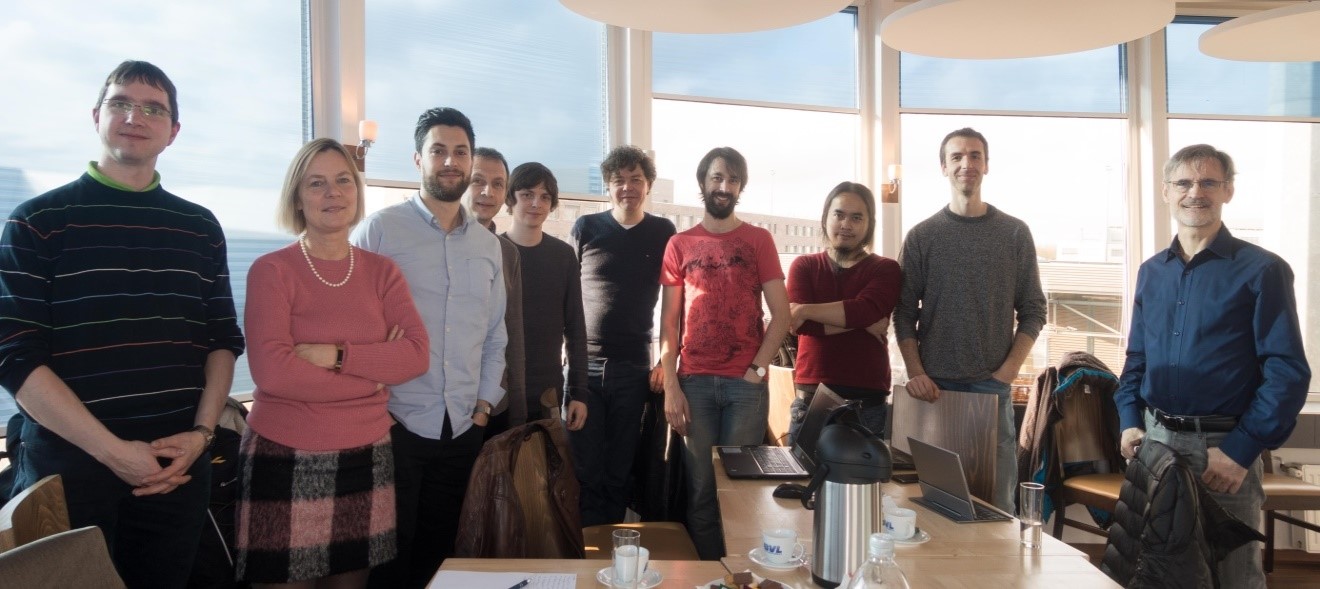BigDataCube
Big Earth Datacube Analytics Made Easy
The proliferation of earth observation satellites has resulted in a wealth of image data from proprietary sources like Intermap as well as imagery that is available from public agencies like the European Space Agency. But availability does not equal accessibility: the challenges range from knowing what data are actually available to understand how to process the various data on various platforms and consolidate them into one usable product. To solve this problem, Jacobs University Bremen initiated a consortium to explore the possibilities of Array Database Systems (also called datacube) brought together the Germany-based global leader in datacube technology, rasdaman GmbH (Bremen), with German Aerospace Center DLR (Deutsches Zentrum für Luft- und Raumfahrt, Munich), and cloudeo AG (Munich) as the leading provider of cloud-based earth observation data and services. The project, which ran for 18 months, from the beginning of 2018 until mid-2019, was financed by the German Federal Ministry for Economic Affairs and Energy, BMWi.
From the perspective of Jacobs University, the project was conceived to demonstrate the integration of free, publicly available data with commercially available data services, using the innovative “any query, any time, on any size” datacube paradigm – in technical lingo, “analysis-ready Spatio-temporal raster data.” For the user experience, the goal was to create a simple interface that offers seamless access to multiple data sources, which were distributed globally (Germany, US, Australia) and available in different resolutions – but combined and analyzed into one single environment.
For cloudeo, this project offered an opportunity to showcase its platform-as-a-service (PaaS) capabilities. To this end, rasdaman servers were initially installed on the German Copernicus hub, CODE-DE, as well as in the commercially hosted, “mix and match” processing environment of cloudeo: Complementing the services that were already available on CODE-DE, rasdaman offers essential additional functionality, in particular an interactive paradigm that abstracts away the specific domain knowledge for different EO databases. The cloudeo Service API handled everything from order orchestration to data accessing and processing, including the monetization through the cloudeo store. To accompany the pilot project, BigDataCube Terrain profiles were also made available as Data-as-a-Service offerings in the cloudeo store.
Using the cloudeo platform as a service minimized the administrative effort for potential customers: these users just needed to specify whether they needed terrain profiles – defined by two points and their latitudinal/longitudinal position – or viewsheds, described by one point (latitude/longitude) and an angle between 0° and 360° degree.
The resulting multiresolution elevation services are strictly based on open geo standards. For this particular pilot project, cloudeo combined commercial data, provided by Intermap and PlanetObserver, with open source data (in this case, the OpenData_Bavaria data set); the cloudeo store acted as the customer interface to products and geoservices, and the cloudeo Service API handled everything from authenticating users to generating reports and billing the customers.
Ultimately, this project’s goal was to establish best practices for using data in operational environments and to initiate a federation of rasdaman installations on other EO data centers. This will encourage novel, specialized services by third parties quickly, flexibly, and scalably.

The BigDataCube project team: (from left to right): Stefan Wiehle (DLR), Dr. Ursula Benz (CEO CloudEO AG), Dimitris Bellos (CloudEO AG), Simon Tzvetanov (CloudEO AG), Vlad Merticariu (Jacobs University Bremen, rasdaman GmbH), Sven Jacobsen (DLR), Brennan Bell (Jacobs University Bremen), Bang Pham Huu (Jacobs University Bremen), Dimitar Misev (Jacobs University Bremen, rasdaman GmbH), Prof. Dr. Peter Baumann (CEO rasdaman GmbH, Jacobs University Bremen). Photo: Heike Hoenig, rasdaman GmbH
Contact:
- Prof. Dr. Peter Baumann, Jacobs University Bremen
- Website: www.bigdatacube.org
